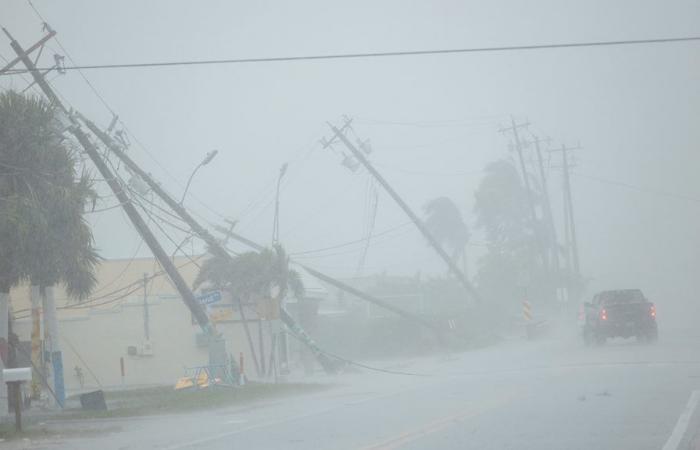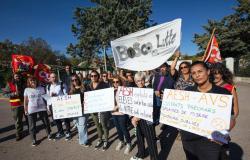
American activists criticized the US administration’s handling of Hurricane Milton, which struck Florida, and said that it was busy with other matters outside the country.
At the end of last May, the National Hurricane Center warned that the hurricane season, which usually extends from the beginning of June to the end of November, would be exceptional in the southeastern United States this year.
Two weeks ago, the same region was hit by Hurricane Helen, which was described as the second most violent hurricane to hit the United States in more than half a century, causing the deaths of more than 200 people in 6 states, destroying homes and roads, and cutting off electricity and mobile phone service for millions of people.
Yesterday, Wednesday, Hurricane Milton swept across the western coast of Florida and made landfall accompanied by violent winds and heavy rains, leading to widespread destruction of infrastructure.
The strong winds and heavy rain destroyed a number of homes and buildings, especially in residential areas with mobile homes, and deprived more than 2.5 million homes of electricity.
The wind speeds associated with Hurricane Milton reached 195 kilometers per hour when it touched down near Sistaki in the Sarasota region, according to the US National Hurricane Center.
Biden cancels foreign trips
Meteorologists and insurance experts estimated the economic losses that would result from the passage of Milton at between 60 and 75 billion dollars. US President Joe Biden quickly postponed his visit to Germany and Angola, which was scheduled for Thursday.
Biden postponed his trip in order to oversee hurricane preparations and response, in addition to the ongoing response to the impacts of Hurricane Helen throughout the Southeast.
Commenting on these developments, activist John said, “The hurricane is strong and the equipment is not sufficient to respond to it… Unfortunately, our government is busy with other matters outside this geographical area.”
As Lara wrote: “This is very scary. Why don’t residents evacuate before the hurricane arrives? Why wait until the last second after the disaster is around the corner?”
As for Wilde, he said, “The losses inflicted on the structure every year from natural disasters are terrifying!” He asked: “Is there a government that can develop a plan to mitigate these losses instead of sending our money to other countries?”
Finally, Rashid said: “In the midst of the election campaign, these hurricanes come… Certainly, the candidates will exploit them. Even Donald Trump began to accuse Kamala Harris of embezzling aid funds for the afflicted.”
Hurricane research centers noted an increase in the number of scale 4 and 5 hurricanes, that is, those with wind speeds exceeding 200 to 250 kilometers per hour, from an average of 10 hurricanes per year in the 1970s, to 18 hurricanes per year in the 1990s.
The matter did not stop there, but the centers also monitored that hurricanes became more powerful and destructive. Scientists attribute this to climate change, which has made the oceans and atmosphere warmer, which poses an increasing threat to coastal communities and requires better planning and adaptation strategies to reduce the potential impacts of hurricanes.





